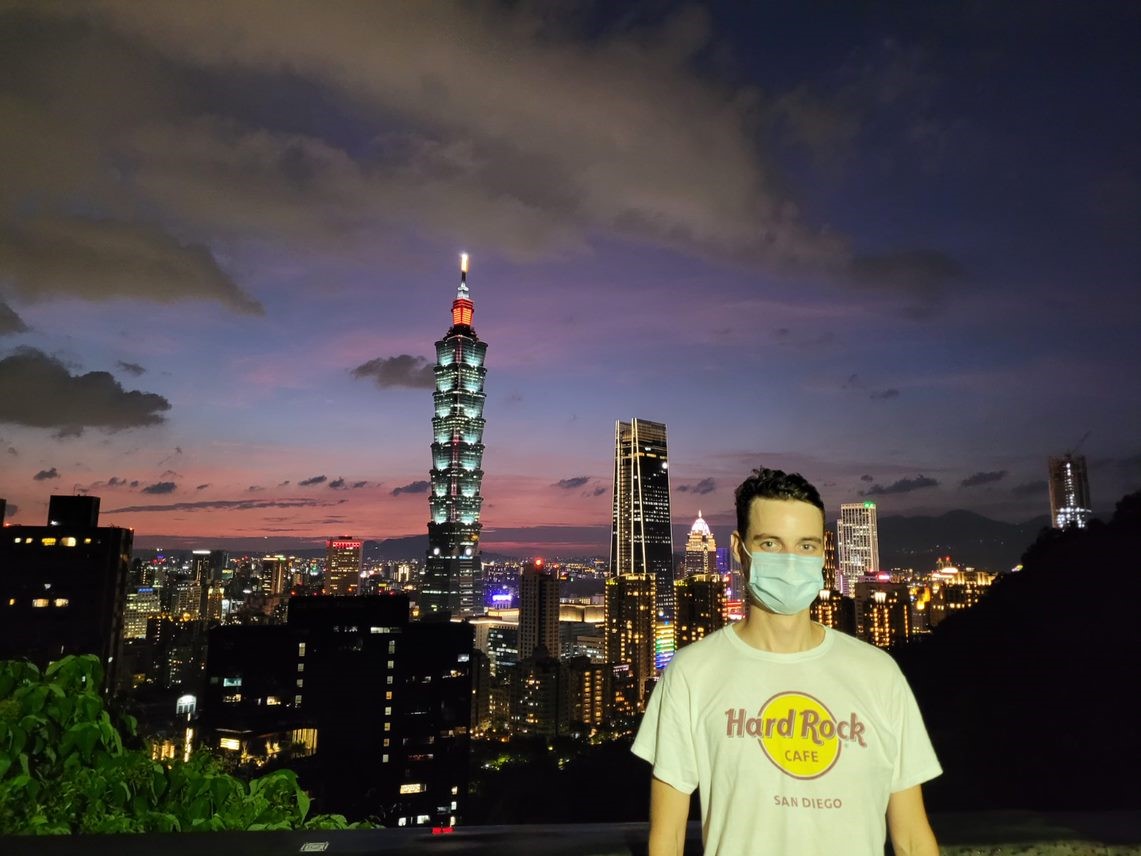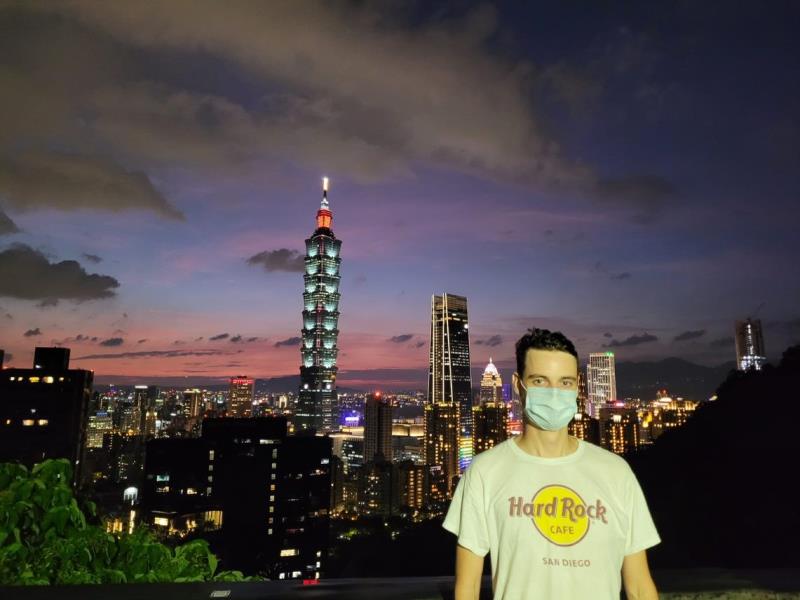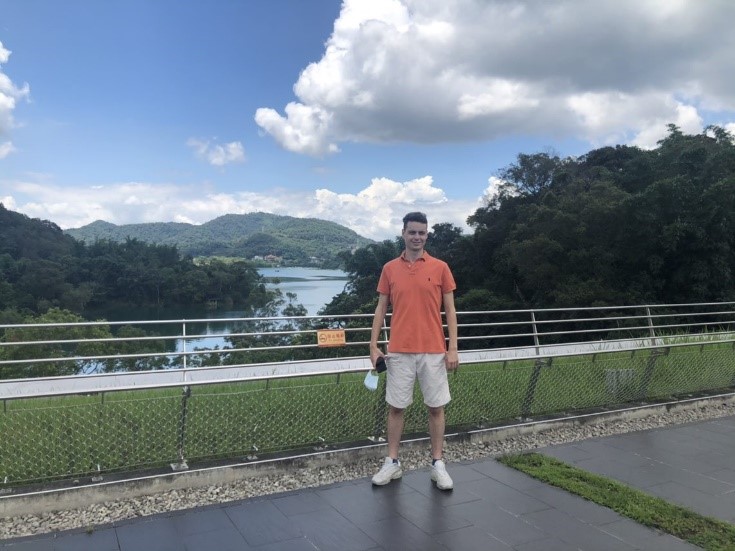Austrian Student Has a Wonderful Time in Taiwan during the Pandemic

“Overall, I had an incredibly fantastic and educational time in Taiwan. The astounding helpfulness of the local population, excellent and affordable food, and the exciting interviews with the professors will remain in my memory for a long time.”
The Ministry of Education of the Republic of China (Taiwan), and the Austrian Federal Ministry of Education, Science and Research signed a memorandum of understanding on cooperation in the field of higher education in 2019, and each of the parties will providing funding to support the mobility of a range of students (bachelor’s degree, master’s degree, and PhD-level), lecturers, and researchers.
Tristan Kempf, a master’s degree student at FH Joanneum University of Applied Sciences in Graz received a scholarship as a result of this MOU. He chose National Kaohsiung University of Science and Technology for his study abroad to gain international experience. And he was able to go there despite the global pandemic.
Taiwan’s entry restrictions in response to the pandemic are very strict and this made the visa application process more complex than in regular times. Tourist stays are currently excluded; only non-tourist visas can be issued. These must be specifically justified, so a special entry document had to be issued by the university in Kaohsiung. After repeated administrative efforts on the part of the Education Divison of the Taipei Economic and Cultural Office in Austria and with the support of Austria’s Agency for Education and Internationalisation (OeAD), a visa was finally issued and Tristan could finally look forward with anticipation to his upcoming trip.
He arrived at Taoyuan International Airport after a 15-hour flight via Istanbul - which he described as the emptiest flight he’d ever experienced. He then went directly to Kaohsiung in a “pandemic taxi” to start his 14-day quarantine in a quarantine hotel. This was followed by seven days of health management in his rented apartment. He used his two weeks in quarantine to work on his master’s thesis and explore Taiwanese cuisine via delivery services, so the time in isolation passed relatively quickly.
However, at just about the same time as his quarantine period ended, Taiwan recorded its most devastating Covid-19 outbreak since the beginning of the pandemic. In contrast to Austria and Germany, there were no harsh government-imposed restrictions on public life perceptible in Taiwan, but he had the impression that in response to the rising infection rates, Taiwanese people were reducing their public activities out of a sense of personal responsibility.
He was disappointed to learn that the university had switched to distance learning. He was already used to such circumstances in Austria and Germany but the lectures were, however, quite different from his lectures in Austria: a lot of videos were shown and there was much less discussion and interaction. And because of COVID-19, there were no exams: the students had to submit papers and give presentations instead. From then on, part of his routine was to check the number of local cases each afternoon and hope for a loosening of restrictions.
Nevertheless, he managed to establish contact with some fellow students through group work and from time to time he met up with them on campus, or to explore famous night markets and sightseeing spots in Kaohsiung. The good thing was that he was able to make good progress working on his master’s thesis as there were relatively few distractions. His stay on-site at the university also benefited his master thesis enormously. Having direct contact with professors especially helped him to organize necessary interviews and to understand Taiwanese culture better. The politically tricky situation between Taiwan and mainland China in the context of international trade was often discussed, and he found this particularly exciting because this was one of several topics that his master’s thesis deals with.
Tristan reported that he’s never traveled to a country where the people are as helpful and friendly as the people in Taiwan. His impression was that Taiwanese are very concerned that guests take a positive impression back home. As a foreigner in an unfamiliar country, the language barrier often made things difficult for him, so he was very glad that in his experience, there was always a friendly local who spoke English and helped him. And in rare moments when this wasn’t the case, Google Translate or waving his hands also came to the rescue.
The authorities relaxed the restrictions slightly in July, so he took the opportunity to travel to Taipei, the former capital, Tainan, and the tourist destination, Sun Moon Lake, before leaving Taiwan. Unfortunately, the restaurants and some of the attractions at Sun Moon Lake were still closed, but on the other hand, he had the unique opportunity to visit the site as one of only a few tourists, and it left a long-lasting impression. His stay in Taiwan during a global pandemic was a unique experience that will stay in his memory. There were some obstacles to overcome, but the effort was very much worth it.


